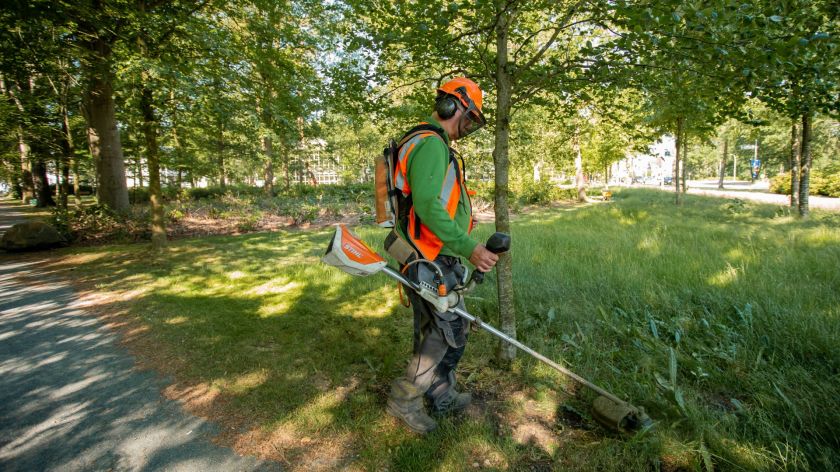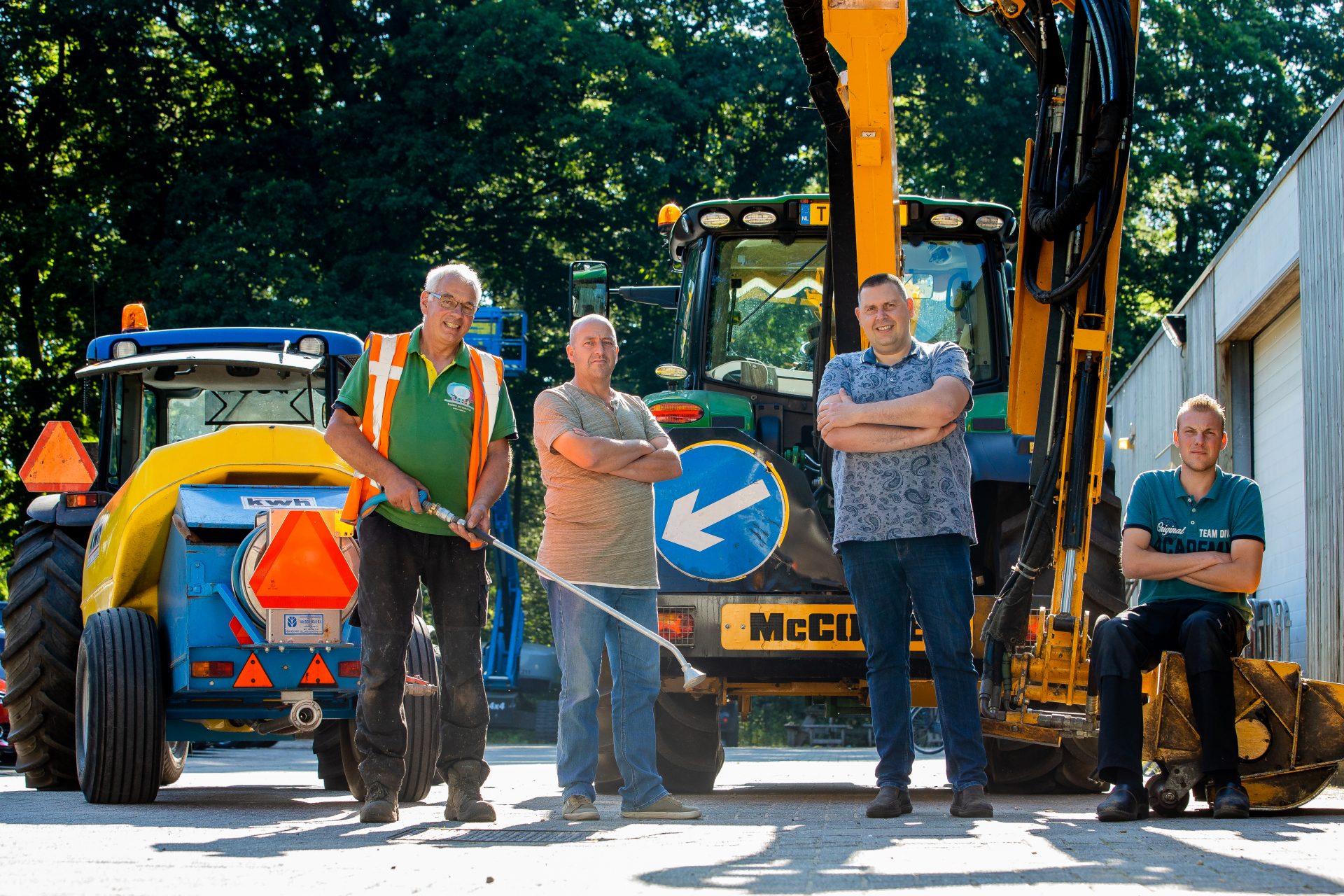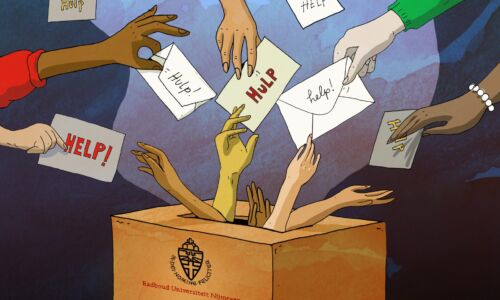Before the worst of the heat, the landscaping crew is already out and about: ‘Using too much water is irresponsible’
-
 De groenploeg aan het werk. Foto: David van Haren
De groenploeg aan het werk. Foto: David van Haren
With the persistent heat, the campus lawns are looking yellow and withered. The groundskeepers are working hard to ensure that the grounds will soon look as lively as possible again. ‘We also have to keep fire safety in mind.’
Tuesday morning 10 am. In the university yard canteen, a few sweaty men in overalls plop down. Cup of coffee, sandwich. It is lunchtime for the landscaping crew of Radboud University and the Radboudumc. Due to the heat, the gentlemen – and a single lady – have started earlier than usual. Working in the blazing sun is not an option, they know.
That same sun is not only a great challenge for the employees. Nature is also having a difficult time. The lawns all over campus are looking withered and yellow. The leaves of some trees also started drooping due to a lack of water.
Young greenery
There is no need for panic however, site manager Terry Willems assures. ‘That is because we very consciously think about which plant we do and do not water. We choose to water mainly the young shrubs and trees. Trees and plants that have been around for years should be able to fend for themselves.’
‘Watering all the grass on campus is simply not possible’
‘You also sometimes just have to let nature take its course’, colleague and team leader Alfons Kuster adds. ‘Watering all the grass on campus is simply not possible. It would be irresponsible to use that much water. Besides, it is also extremely inconvenient, with all those students lying in the grass.’

And thus, for example, the young greenery along the brand-new Gerard Leckie path, or the new green lanes in front of the Radboudumc entrance, get more attention (and water) than other spots. During previous summers, when temperatures also soared, the same principle was applied.
15,000 litres
Plants that need water get it via a water tank to which a hose with a sprinkler is connected. That keeps Gerard Peters busy several days a week. Sometimes with the university’s own tank, but usually a larger one from an external company.
‘This fits 1,200 litres’, Gerard Peters explains as he stands next to the university’s tractor with water tank. He fiddles a bit with the spray hose. ‘The truck coming later this week will hold 15,000. That’s quite a difference’, he says with a smile.
So most trees are watered by hand. ‘With these three, however, it’s done via a computer-controlled system’, Kuster explains at the back of the Grotius building. ‘Because they are on top of the underground car park, they are standing in relatively little soil. As a result, the roots cannot extract much groundwater. The system lends a hand by sending some water through hoses in that direction every so often. And as you can see, the grass around it also benefits: it is greener than in other places.’
Cigarette butts
Especially important with these summer temperatures is fire safety, Willems knows. ‘With the bright sun, it only takes a can or a piece of glass, and you have a fire. And what about a cigarette butt? Officially, you are no longer allowed to smoke on the grounds, but of course, that happens anyway.’ He shakes his head. ‘It only takes one person to throw away his cigarette butt…’
‘That’s also why we mow the grass more often,’ Kuster adds. ‘Around buildings, we want to have a strip of at least a metre of short grass, so the fire can’t spread easily.’
‘Please make sure that cigarette butts are put out and disposed of properly’
When it comes to mowing, choices have to be made as well, he explains. ‘Longer grass is much better for biodiversity. But if it stays this dry, we will need to mow the lawns more often. The taller the grass, the more moisture it needs to avoid withering. Shorter grass catches fire less easily.’
As it does not look like it will rain in the coming days, the gentlemen are appealing to students and staff. Willems: ‘If you smoke, please make sure the butts are out and disposed of properly. If you throw a cigarette butt in a rubbish bin, make sure it is out properly. Otherwise, it may start to smoulder and before you know it, you have a fire in a waste bin’.
Translated by Jan Scholten



